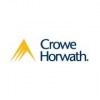Filter interviews by
Manasvin Consulting Interview Questions and Answers
Be the first one to contribute and help others!
Interview questions from similar companies

Data Analyst Interview Questions & Answers
EY Global Delivery Services ( EY GDS)posted on 11 Sep 2022
I applied via Referral and was interviewed before Sep 2021. There were 4 interview rounds.

(1 Question)
- Q1. Questions will depend on the skill set mentioned in the resume. One needs to have basic clear.
(1 Question)
- Q1. Interview with Senior Manager. Not technical more of a general interview round. Getting to know about the past experiences, what lies ahead.
(1 Question)
- Q1. Salary negotiation was the final round
Interview Preparation Tips

Consultant Interview Questions & Answers
EY Global Delivery Services ( EY GDS)posted on 20 May 2022
I applied via Approached by Company and was interviewed before May 2021. There was 1 interview round.
(1 Question)
- Q1. Can't disclose the question.
Interview Preparation Tips
- Power Bi

Data Analyst Interview Questions & Answers
EY Global Delivery Services ( EY GDS)posted on 8 Dec 2020
I applied via Campus Placement and was interviewed in Jun 2020. There were 4 interview rounds.
Interview Questionnaire
6 Questions
- Q1. C++basics :class,object, inheritance, encapsulation
- Q2. What is diode, transistor
- Ans.
A diode is an electronic component that allows current to flow in only one direction. A transistor is a semiconductor device used to amplify or switch electronic signals.
Diode is a two-terminal electronic component that conducts current primarily in one direction.
Transistor is a three-terminal electronic component that can amplify or switch electronic signals.
Diodes are commonly used in rectifiers, voltage regulators, ...
- Q3. Arafat vs linked list
- Ans.
Arafat and linked list are unrelated concepts.
Arafat is a name of a person, while linked list is a data structure used in computer science.
Arafat is associated with the Palestinian leader Yasser Arafat, while linked list is associated with programming languages.
There is no connection or comparison between Arafat and linked list.
- Q4. Loops
- Q5. Any plan for higher study
- Ans.
Yes, I am planning to pursue a Master's degree in Data Science.
I have been researching various universities and programs that offer a Master's degree in Data Science.
I believe that a higher degree will help me gain a deeper understanding of the field and enhance my skills.
I am particularly interested in courses that focus on machine learning and data visualization.
I plan to continue working while pursuing my degree, so...
- Q6. Why you choose electronics
Interview Preparation Tips

Senior Associate Interview Questions & Answers
EY Global Delivery Services ( EY GDS)posted on 19 Jul 2021
I applied via Recruitment Consultant and was interviewed before Jul 2020. There were 4 interview rounds.
Interview Questionnaire
3 Questions
- Q1. What was your expectation from this new role?
- Q2. Can you elaborate on your past experiences?
- Q3. What do you want to work with EY GDS?
Interview Preparation Tips

Associate Interview Questions & Answers
EY Global Delivery Services ( EY GDS)posted on 29 Jul 2021
I applied via Campus Placement and was interviewed before Jul 2020. There were 4 interview rounds.
Interview Questionnaire
4 Questions
- Q1. What is bank reconciliation?
- Ans.
Bank reconciliation is the process of comparing a company's bank statement with its own accounting records.
It helps to identify any discrepancies between the two records.
It ensures that all transactions are accurately recorded in the company's books.
It involves matching transactions on the bank statement with transactions in the company's accounting system.
Any differences are investigated and resolved.
Examples of items...
- Q2. What is cash flow statement?
- Ans.
Cash flow statement is a financial statement that shows the inflow and outflow of cash in a business over a period of time.
It shows the sources of cash and how it is used.
It is divided into three sections: operating, investing, and financing activities.
It helps in analyzing the liquidity and solvency of a business.
Example: A company's cash flow statement shows that it has a positive cash flow from operating activities,...
- Q3. Journal entries
- Q4. More questions on cash flow statement by asking and example
Interview Preparation Tips

Consultant Interview Questions & Answers
EY Global Delivery Services ( EY GDS)posted on 8 Mar 2021
I applied via Referral and was interviewed in Sep 2020. There was 1 interview round.
Interview Questionnaire
3 Questions
- Q1. Fixed Asset, Debtor, Inventory Audit procedures
- Q2. Journal entries
- Q3. Audit materiality
Interview Preparation Tips

Consultant Interview Questions & Answers
EY Global Delivery Services ( EY GDS)posted on 2 Jun 2021
I applied via Naukri.com and was interviewed in May 2021. There were 3 interview rounds.
Interview Questionnaire
1 Question
- Q1. Java 8 related questions and scenario based questions were asked related to code and database queries.
Interview Preparation Tips

Associate Interview Questions & Answers
EY Global Delivery Services ( EY GDS)posted on 30 Sep 2021
I applied via Monster and was interviewed in Mar 2021. There were 3 interview rounds.
Interview Questionnaire
1 Question
- Q1. Salary appraisal
Interview Preparation Tips

Assistant Manager Interview Questions & Answers
EY Global Delivery Services ( EY GDS)posted on 4 Oct 2021
I appeared for an interview in Apr 2021.
Interview Questionnaire
1 Question
- Q1. All about dcf, they asked
Interview Preparation Tips

Software Engineer Interview Questions & Answers
EY Global Delivery Services ( EY GDS)posted on 19 Oct 2021
I applied via Company Website and was interviewed in Apr 2021. There was 1 interview round.
Interview Questionnaire
1 Question
- Q1. About sql, linq, c#
Interview Preparation Tips
Manasvin Consulting Interview FAQs
Tell us how to improve this page.
Interview Questions for Popular Designations
Interview Questions from Similar Companies

EY Global Delivery Services ( EY GDS)

BDO India LLP

RSM India

Grant Thornton Bharat
- Home >
- Interviews >
- Manasvin Consulting Interview Questions










